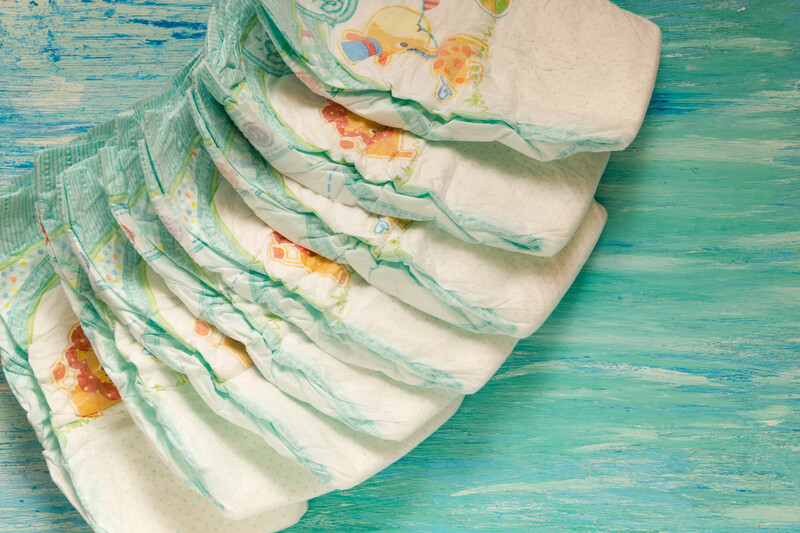Innovative Approaches for Better Home Recycling Strategies
In today's environmentally-conscious world, improving home recycling is more important than ever. Sustainable households start with understanding waste, and innovative recycling approaches can drastically reduce landfill contributions. In this comprehensive guide, we'll explore modern home recycling strategies that are actionable, creative and highly effective.

Why Improve Your Home Recycling Approach?
Home recycling isn't just about separating paper from plastics anymore. With landfills filling up and microplastic pollution becoming a persistent threat, families need innovative home recycling methods to minimize environmental impact. Recent studies show that effective recycling techniques significantly decrease household waste, carbon emissions, and overall ecological footprint.
Key Benefits of Modern Residential Recycling
- Reduces landfill waste and pollution
- Conserves natural resources and energy
- Creates sustainable habits for future generations
- Encourages environmental responsibility
- Promotes community engagement in local recycling programs
Smart Sorting Systems for Effective Home Recycling
Accurate sorting is the foundation of innovative home recycling strategies. Typical recycling efforts often fail due to risks of cross-contamination--placing the wrong item in the wrong bin renders entire batches of recyclables unusable. Here's how to innovate your sorting systems:
1. Multi-Bin Recycling Stations
Rather than a single blue bin, set up a multi-bin recycling setup in your kitchen or garage. Use separate, clearly labeled bins for:
- Papers and Cardboards
- Plastics (identify by resin codes!)
- Metals (aluminum, steel, tin)
- Glass (clear and colored, if possible)
- E-waste and batteries
- Compostables (more on this ahead)
2. Color-Coding and Icon Systems
Visual cues can help every family member recycle correctly. Use color-coded bins and bold icons for each category. Stickers and printed guides make the process intuitive for kids and guests, boosting your home's recycling success.
3. Smart Tech Integration
The future of home recycling lies in integrating smart technology:
- Smart bins with built-in sensors can detect misplaced items and send alerts to your phone.
- Mobile apps can scan barcodes and offer guidance on how to recycle or dispose of items.
- Recycling reminders via calendar notifications keep you on schedule for collection days.
Creative Ways to Reuse and Repurpose at Home
Not all waste needs to enter the recycling stream. Embrace the "reuse, repurpose, and upcycle" philosophy to shrink your waste footprint even further.
1. Household Upcycling Projects
Turn everyday materials into useful items or art:
- Glass jars: Use as food storage, craft supply holders, or vases.
- Plastic bottles: Cut and use as planters, watering cans, or bird feeders.
- Cardboard boxes: Make drawer dividers, playhouses for kids, or DIY organizers.
2. Community Swap Events
Host or attend local swap events to exchange unwanted items with neighbors. Clothing, toys, furniture, and electronics may all find second lives, reducing waste and building a circular community economy.
Introducing Composting as Part of Your Recycling Strategy
Organic waste makes up over 30% of residential trash. Home composting diverts food scraps, coffee grounds, and yard waste from landfills, returning valuable nutrients to your garden instead. Here's how to get started:
Indoor and Outdoor Composting Solutions
- Countertop compost bins: Compact, odor-trapping containers for kitchen collections.
- Bokashi composters: Ferment food waste, including meat and dairy, for fast results indoors.
- Backyard tumblers: Speed up decomposition, reduce pests, and yield rich soil enhancer for gardens.
*Embracing composting not only slashes waste but enriches your homegrown produce and reduces fertilizer needs.*
Leveraging Technology for Streamlined Home Recycling
Advances in technology mean innovative recycling solutions are more accessible than ever for households.
Popular Recycling Apps and Tools
- iRecycle: Offers local recycling guides for thousands of items based on your zip code.
- Recycle Coach: Personalized reminders, sorting guides, and collection schedules.
- TerraCycle App: Pinpoints drop-off locations for hard-to-recycle waste streams (like toothbrushes or snack wrappers).
These digital tools eliminate confusion about recycling specifics, helping every family member become an eco-champion.
Smart Appliances and Recycling Robots
- Smart dishwashers and appliances offer eco-friendly cycles and some can compost food scraps automatically.
- Mini recycling robots are emerging for residential use; they scan, sort and separate waste right at home, outperforming manual efforts and reducing contamination.
The integration of automation means improved results with less daily effort. As these devices become more affordable, expect to see them transform future recycling habits.
Education and Motivation: Engaging the Whole Household
Even the best home recycling strategy will fail without full participation. Ongoing education and motivational incentives are crucial.
Educational Campaigns for Families
- Regular "recycling refreshers": Hold quick meetings to review best practices and clear up confusion.
- Visual guides: Hang posters or infographics above bins as quick references.
- Kids' challenges: Turn sorting or upcycling into a game with prizes for participation.
Gamification engages younger family members and strengthens recycling habits at an early age.
Incentives and Friendly Competitions
- Track recycling rates: Use an app or chart to log diverted waste and set monthly goals.
- Set up family rewards: Treats, outings, or other perks inspired by hitting zero-waste milestones.
These motivational approaches foster teamwork and accountability, making recycling a household priority.
Handling Hard-to-Recycle and Hazardous Materials Responsibly
Some items can't go in standard bins--electronics, batteries, light bulbs, and paint require special handling. Many communities now offer:
- Household hazardous waste (HHW) collection events
- Electronic waste drop-offs
- Specialty mail-back recycling programs (e.g., for ink cartridges or small electronics)
For zero landfill waste, regularly research local options for disposing of these materials safely and sustainably.
Innovative Community Programs Making Recycling Easier
Partnerships between homeowners, local governments, and private innovators are key to the recycling revolution. Consider joining or advocating for:
Recycling Subscription Boxes
- Monthly or bi-monthly pickups for specialty recyclables
- Pre-paid labels and containers for mail-in programs
Compost Pickup Initiatives
- Third-party services that collect household food scraps for large-scale composting
- Community gardens that take organic waste from residents
Buy-Back and Circular Economy Programs
- Retailers offering trade-in or buy-back for used electronics, clothes, or appliances
- Local repair cafes and fix-it events extending product life cycles
These programs make it even easier for households to participate in cutting-edge recycling strategies and help build a truly circular economy.

Future Trends in Home Recycling Innovation
The future of home recycling will be driven by continual innovation. Expect to see:
- AI-powered sorting systems integrated into home waste stations
- Bio-engineered packaging that decomposes safely at home
- Expanded extended-producer responsibility (EPR) policies mandating brands to handle end-of-life management
- Peer-to-peer reuse apps seamlessly connecting neighbors for sharing, borrowing, or gifting unused goods
- Material passports on products, making recycling and repair easier, traceable, and more profitable
As these trends grow, household recycling will become more intuitive, efficient and impactful than ever before.
Conclusion: Make Recycling a Lifestyle, Not a Chore
Innovative approaches for better home recycling strategies start with education and action. By utilizing smart sorting, embracing reuse and upcycling, leveraging technology, and participating in community programs, you'll not only shrink your environmental footprint -- you'll also inspire others to join the movement. Start today by auditing your home's current system, implementing just one or two new strategies, and sharing your progress with family and friends. Every step, no matter how small, contributes to a more sustainable future.
Your home can lead the way in modern recycling innovation. Together, we can build a cleaner, greener world, starting from the comfort of our living rooms and kitchens.
Ready to Revolutionize Your Home Recycling?
- Begin with a bin refresh: Upgrade your bins, labels, and guides for a friendlier system.
- Try at least one creative reuse project this month.
- Download a recycling app: Stay informed and motivated easily.
- Share your tips, upcycles, and progress on social media to inspire your peers!
Embrace these innovative home recycling strategies today--and watch your household waste (and climate anxiety) shrink for good.